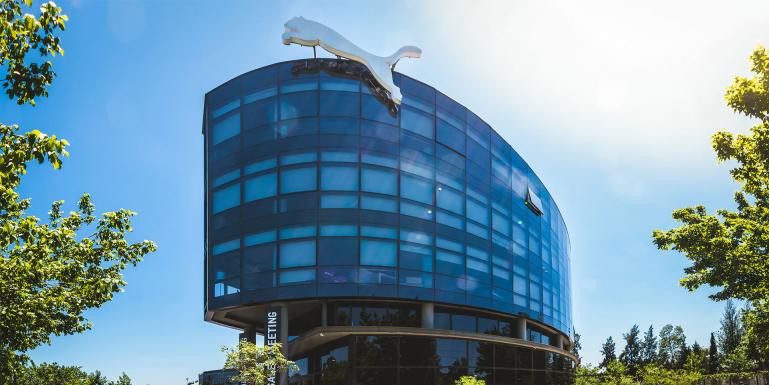German sports apparel retailer Puma announced today that its financial results for the fourth quarter of 2023 and the full year were impacted by Argentina’s major devaluation of its currency in December. The company reported preliminary results that fell below expectations, causing its shares to drop by 7.3% at midday in London, placing them at the bottom of Europe’s Stoxx 600 index.
Puma’s full-year currency-adjusted sales growth was estimated at 6.6%, lower than the expected high single-digit growth, with sales reaching around 8.6 million euros ($9.37 million). Earnings before interest and taxes (EBIT) stood at approximately 622 million euros. While these figures were in line with the company’s guidance, Puma stated that it would have achieved 8% sales growth and higher EBIT than the previous year’s 641 million euros if not for the effects of the Argentinian peso devaluation.
The impact of the devaluation was particularly noticeable in the fourth quarter, where Puma experienced a sales decline due to the application of hyperinflationary accounting. The company acknowledged that both sales and net income fell below analysts’ consensus, attributing this to the negative effects of the extraordinary devaluation of the Argentine peso, which was not accounted for in the consensus.
Argentina’s new President, Javier Milei, devalued the peso by more than 50% in December as part of his plan to transform the country’s economy. While the move was expected to cause short-term pain by increasing the cost of imports, Milei emphasized its necessity in addressing Argentina’s fiscal deficit and rampant inflation.
Looking ahead, Puma projected mid-single-digit currency-adjusted sales growth and EBIT between 620 and 700 million euros for the 2024 financial year, below the consensus forecast of over 700 million euros. The company’s outlook assumes that future devaluations of the Argentine peso will be offset by corresponding price increases in Argentina.
CEO Arne Freundt commented on the challenges ahead, citing geopolitical and macroeconomic uncertainties that are expected to persist in 2024. These factors are likely to continue weighing on consumer sentiment and demand, particularly in the first half of the year.
Puma experienced record sales and EBIT in 2022, with the Americas emerging as its largest and fastest-growing market, generating 3.68 billion euros compared to 3.1 billion euros in the EMEA region. Additionally, Puma’s Latin America business achieved sales of over 1 billion euros for the first time.
The announcement initially impacted Puma’s rival, Adidas, causing a slight decline in its shares, although it later stabilized in early-afternoon trading. Analyst Piral Dadhania from RBC Europe expressed disappointment in Puma’s revenue, which fell 3% below consensus expectations. Despite this, RBC Europe maintained an “outperform” rating for Puma, noting sectoral tailwinds in the sporting goods industry driven by gross margin recovery and an improving inventory cycle.
Puma’s final results for the fourth quarter and full year of 2023 will be published on February 27, providing a more detailed insight into the company’s performance and outlook for the upcoming year.
(Source: CNBC | WSJ | MarketWatch | Reuters)









